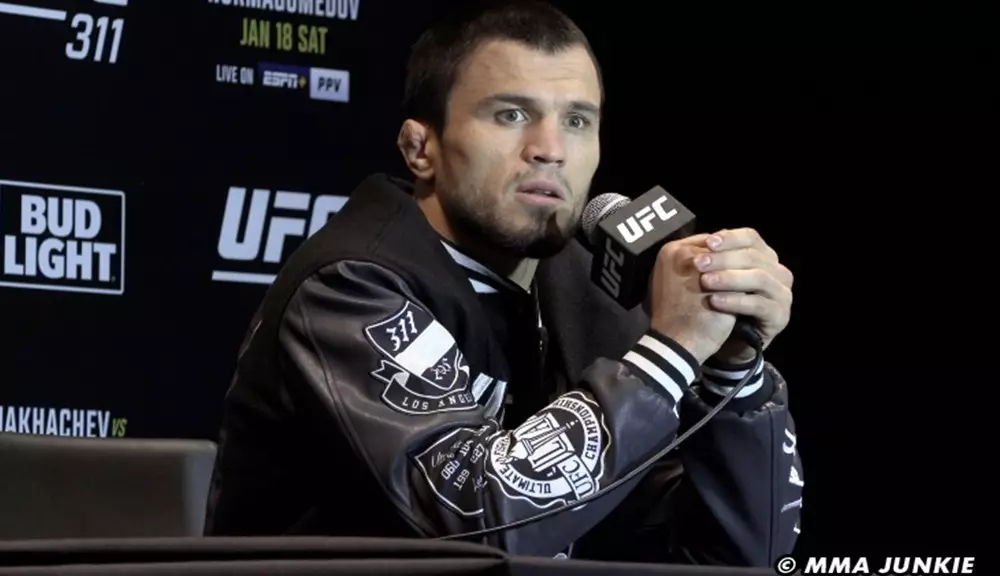As the UFC draws nearer to its highly anticipated co-main event at UFC 311, intrigue surrounds the bantamweight bout featuring Umar Nurmagomedov and reigning champion Merab Dvalishvili. Scheduled for Saturday at the Intuit Dome in Inglewood, California, this matchup has evolved into more than just a fight; it’s a display of contrasting perspectives and psychological warfare between the two fighters. Nurmagomedov, who boasts an unblemished record of 18-0, has openly accused Dvalishvili of hesitance, insinuating that the champion has been reluctant to accept the challenge posed by him.
Challenger’s Perspective
Nurmagomedov’s assertions come ahead of a match that carries not just personal stakes but implications for the future of the bantamweight division. He argues that Dvalishvili’s reluctance to face him is indicative of fear, revealing a deeper narrative at play. “He’s nervous – of course he’s nervous,” Nurmagomedov stated during UFC 311’s media day. His conviction shines through as he notes that Dvalishvili’s hesitance predates his championship reign, suggesting a history of avoidance that extends beyond mere match schedules. For Nurmagomedov, this fight symbolizes an overdue confrontation against a competitor who has, in his view, sidestepped what should have been a decisive clash long ago.
On the opposing side, Dvalishvili’s response to Nurmagomedov’s claims has been one of dismissal. He has publicly articulated his belief that the challenger lacks the requisite accolades to warrant a title shot, framing the narrative around meritocracy. It raises questions regarding the dynamics of the sport where perceptions often clash with reality. While Nurmagomedov has highlighted his significant fighting pedigree, including a six-fight winning streak in the UFC, Dvalishvili counters that narrative with skepticism. It leaves fans and analysts questioning whether Dvalishvili’s opposition stems from legitimate concerns about competition or a tactical avoidance.
Adding another layer to this complex rivalry is the heavy influence of legacy that both fighters carry. Nurmagomedov’s association with his cousin, legendary fighter Khabib Nurmagomedov, undoubtedly raises expectations. However, he firmly believes he has created his own path to this title shot, asserting that his rising success comes from hard-fought battles rather than familial connections. Similar paths are noted within the division, where fighters can sometimes secure title opportunities based on timing or popularity rather than strictly performance. Despite this, Nurmagomedov rejects notions that he benefits from nepotism, insisting that merit should guide these crucial decisions.
As UFC 311 approaches, the backdrop of personal and professional rivalry intensifies the anticipation surrounding this bantamweight confrontation. The fight represents more than just a quest for a championship; it embodies struggles for acceptance, legacy, and recognition in a cutthroat sport where every action is scrutinized. For Nurmagomedov, victory signifies more than a title; it’s a validation of his skills and a rebuttal to the claims made by Dvalishvili. Conversely, for the champion, defending his title whilst putting to rest the shadows of doubt and perceived cowardice is paramount. As the date nears, the air thickens with tension, and the octagon becomes the battleground for not just a championship, but also the raw essence of competitive spirit.

